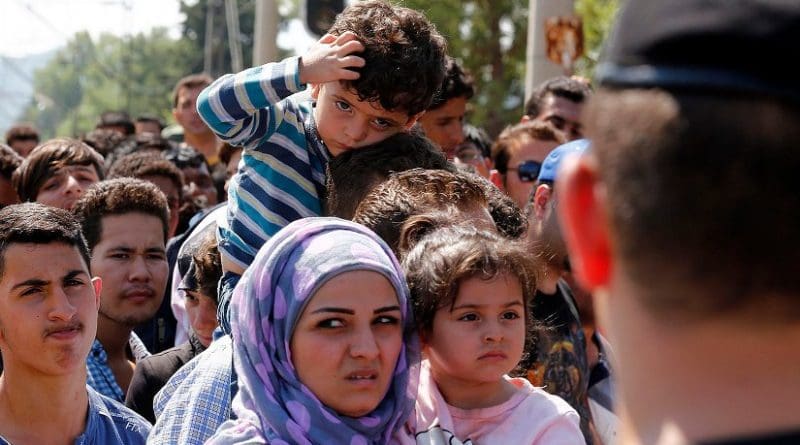Migrants Protest After Macedonia Closes Border
By Meri Jordanovska
Hundreds of migrants have been protesting for several days at Macedonia’s southern border with Greece against Skopje’s decision only to allow them to transit the country if they come from war-torn states.
The migrants have been protesting on the railway line in Gevgelija in southern Macedonia since Wednesday, when the authorities ruled that migrants from Iran, Libya, Morocco, Somalia and Bangladesh would no longer be allowed to transit the country.
Only refugees from countries affected by ongoing armed conflicts such as Syria, Afghanistan and Iraq who possess complete documents are currently being allowed to enter Macedonia.
The Macedonian authorities followed the example of Slovenia, Serbia and Croatia, which are also on the Balkan refugee transit route, in an attempt to keep out what they regard as economic migrants.
The Macedonian government is reported to have received written notice from Croatia and been informed by telephone by Serbia that Zagreb and Belgrade will send back migrants who do not come from conflict zones.
The protesters are demanding however that they must be allowed to continue their journeys towards Western Europe, primarily to Germany, and have the opportunity to apply for asylum or refugee status.
Some of the migrants told Macedonian media that they don’t have the money to go back and haven’t eaten for days.
Macedonian and Greek police have boosted their presence along the border, but have not intervened to disperse the protesters so far.
The build-up of migrants at the border has been further worsened by deteriorating weather conditions in the area which has been hit by rain and wind over the past two days.

